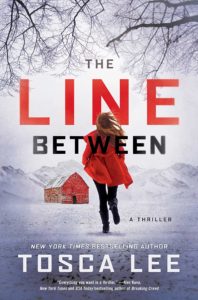10. How Can Excellent Christian Fiction Strengthen Our Faith in Jesus?
Podcast: Play in new window | Download (Duration: 58:56 — 55.3MB) | Embed
Fantastical Truth returns with another tricky topic: people’s “deconversion” from, or “deconstruction” of, the biblical Christian faith.
In the last year we’ve heard these accounts from at least one popular Christian leader, and from a popular comedy duo from an evangelical background. Of course, you likely have many friends or even family members who say they were once Christians, but aren’t any more.
In this episode, E. Stephen Burnett and Zackary Russell won’t try to refute their points with logic and apologetics. (Others have been doing this well.) Instead we hope to explore why some professing Christians reject their faith, and not others. And we’ll ask a very cautious question: can excellent Christian-made stories help give young believers a stronger faith?
Concession stand
- We won’t go through everyone’s professed “deconversion” story.
- Also, we might touch on the whole issue of whether someone who “deconverts” was ever truly saved.
- We still hope these folks are/will be believers as they once professed to be. People can profess doubt in Jesus only to return to him later.
- We view these accounts sympathetically, but not above criticism; they’re just as much subject to graciously skeptical “deconstruction.”
- Finally, we don’t mean to offer some Method to keep you strong in the faith, impervious to doubts or competing religions. We don’t say, “Here, read better Christian fiction and you’ll always keep your faith!” But we can look at our own accounts and see common factors.
Our big questions
- Do people who “deconvert” from Christianity “evangelize” for their view using the language of only “rational thought”?
- Do “deconstructing” non-believers recognize the significant role of human imagination in their change of mind/heart?
- Also, do they recognize that they are not simply “deconverting” from Christianity but also converting to the default religion of Selfism?
- In the deconverters’ past, what kinds of stories did they grow up with and enjoy for recreation?
- Which images, songs, movies, books, pictures took “shortcuts” to their brains, zooming past all the “rational thoughts”?
- In the deconverters’ present, what kinds of stories have reflected and shaped their dreams, ideas, and deep internal longings?
- What cultural forces have given them these stories, and aren’t these cultural forces also subject to skepticism and “deconstruction”?
How do great stories shape our beliefs?
Great stories shape our deepest desires.
We don’t mean these stories give us desires. Based on our deepest dreams and wants, we will prefer stories that reflect and shape these desires. The stories we love, past and present, reveal what people we truly are.
Great stories shape our view of the world.
For example, some “former Christians” say they met wonderful, moral nonbelievers in the world, who challenged their beliefs just by existing. But if you grew up with excellent Christian-made stories that already included likeable and moral yet non-Christian heroes, then this “groundbreaking” idea shouldn’t have taken you by surprise.
Great stories prepare us for hard truths about God.
Maybe you grew up learning complex apologetics arguments and nonfiction teaching about how/why a good God allows sin and suffering. But you need to experience these things to fully understand them. Scripture itself presents not just abstract teachings, but narratives in which even God’s heroes undergo suffering and other hard realities. Other stories, including stories made by Christians, should be doing the same, so that we are better prepared for this reality.
Examples of belief-shaping stories
- The Left Behind series is oft-maligned for its potboiler-meets-prophecy stance, but also reflects real hardship and missional heart.
- In Mary Doria Russell’s novels The Sparrow and Children of God, Jesuit missionaries face aliens and trauma in space.
- Nonfiction biographies are true stories that seem “unbelievable,” and help Christians experience the suffering of other saints.
Applications
- Prepare your mind and imagination for suffering and doubts, especially during the good times.
- Christian parents: make sure your kids get good, solid stories! These can actually be the means of helping children mature.
- We should read every “deconversion” story through the lens of Scripture, and not our own experiences of doubt or harm by others.
Scriptures
… Avoid irreverent babble, for it will lead people into more and more ungodliness, and their talk will spread like gangrene. Among them are Hymenaeus and Philetus, who have swerved from the truth, saying that the resurrection has already happened. They are upsetting the faith of some.
—2 Timothy 2:16–18
Therefore let us leave the elementary doctrine of Christ and go on to maturity, not laying again a foundation of repentance from dead works and of faith toward God, and of instruction about washings, the laying on of hands, the resurrection of the dead, and eternal judgment. And this we will do if God permits. For it is impossible, in the case of those who have once been enlightened, who have tasted the heavenly gift, and have shared in the Holy Spirit, and have tasted the goodness of the word of God and the powers of the age to come, and then have fallen away, to restore them again to repentance, since they are crucifying once again the Son of God to their own harm and holding him up to contempt. For land that has drunk the rain that often falls on it, and produces a crop useful to those for whose sake it is cultivated, receives a blessing from God. But if it bears thorns and thistles, it is worthless and near to being cursed, and its end is to be burned.
—Hebrews 6:1–8 ESV
Explore more
- Some Early Responses to Joshua Harris’s Confession of Apostasy
- Red Flags in the Spiritual Deconstruction of My Old Friends Rhett and Link
- Let’s Deconstruct a Deconversion Story: The Case of Rhett and Link
- Sarah Salviander: The Journey of an Atheist Astrophysicist who Became a Christian
- Holly Ordway – An Atheist’s Journey to Faith
- ‘Progressive’ Christianity: Even Shallower Than the Evangelical Faith I Left
Fantastical feedback
Kent H., about episode 9, which explores This Present Darkness:
This book saved my life when I read it in high school. Not literally, of course, but I was dabbling in things I shouldn’t have been and it opened my eyes. It’ll always hold a special place in my heart.
Lee W. on the new Lorehaven channel on YouTube:
This is a literal answer to prayer! For so long I’ve been looking for a place to find Christian worldview sci-fi and fantasy. Looking forward to what Lorehaven brings in the years ahead.
Brandon J. shares his fantastic origin story:
Subscribe to Lorehaven magazine!
Our new issue released last week, featuring reviews of ten top Christian fantasy novels.
Subscriptions are free at Lorehaven.com, where you can also download all the magazine’s back issues.
Enter to win Tosca Lee’s The Line Between
We’re holding a drawing for two digital copies of Tosca Lee’s pandemic thriller novel The Line Between, courtesy of the author herself
According to our spring 2019 featured review, The Line Between “quests toward truth among apocalyptic madness,” and “truth glimpses give The Line Between surprising heart-warmth amongst the chill, while its road-trip quest drives fast through mad territory and never once feels bogged down in snowbanks.”
To enter the giveaway, you just need to be a current email subscriber for Lorehaven magazine.
We’ll reach out to our two winners next month before we make the announcement.
Next on Fantastical Truth
We’ll be joined by Kathy Tyers, author of many amazing sci-fi and/or space opera novels, including her landmark Firebird series set in a spacefaring world in which the Messiah has not come … yet. Her novel “Crystal Witness” will re-release from Enclave Publishing this summer, and she’ll join us to explore that story and her whole career crafting spaceships and beyond.
































Share your thoughts about this podcast episode